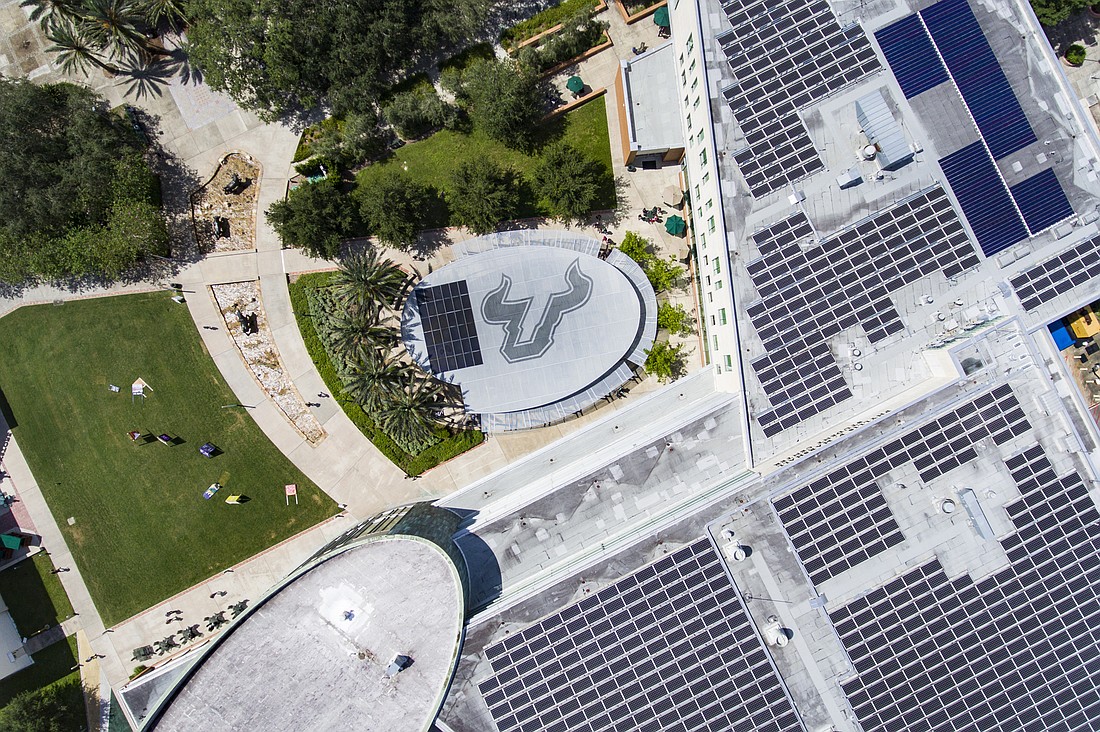- July 26, 2024
-
-
Loading

Loading

Should students be refunded fees that they (or their parents) paid for on-campus services during COVID-19? That question is currently working its way through Florida’s court system, with a focus on a USF student.
The lawsuit has also spurred a second question, one loaded with more legalese but just as crucial: Can universities and colleges in Florida successfully use sovereign immunity, a legal principle that in some instances protects government entities from being sued, to win COVID-19 fee lawsuits?
The USF student and plaintiff seeking the refunds, ValerieMarie Moore, represented by attorneys from the Miami-based Moskowitz Law Firm, has so far scored the case's biggest wins. In the most recent salvo, USF attorneys have appealed to the Florida Supreme Court to have the lawsuit dismissed.
The legal argument USF has used to dismiss the case, in multiple filings, is that sovereign immunity, without "an express, written contract obligating" the school to provide the services, "bars a breach of contract claim." In other words: USF, its attorneys argue, wasn't obligated under a written contract to provide these services for Moore. Therefore, under sovereign immunity, the case should be dismissed, the attorneys say.
In her lawsuit filed in March 2021, Moore contends USF — the official defendant is the University of South Florida Board of Trustees — is in breach of contract for collecting student fees and then failing to offer on-campus services due to COVID-19. "USF has not provided USF students refunds of their fees, even though students are no longer able to use the services for which they paid," the lawsuit argues. In addition to representing Moore, the lawsuit is a class action against USF, arguing on behalf of all students who paid the fees.
The lawsuit cites several examples of things and activities Moore couldn't do, from checking out library books to using campus dining services, from the first COVID-19 shutdown orders in April 2020 through the day the lawsuit was filed, covering nearly a year. The lawsuit also contends Moore, despite paying for it in fees, wasn't able to use the campus Wellness Center for at least those 11 months — quoting the school in its lawsuit as describing the center as a facility "where students can pick up free health products and resources, get a chair massage or grab a power snooze in one of our futuristic nap pods."
While not specifying an amount, the lawsuit seeks a jury trial and for USF to return any prorated fees paid from April 2020 through the spring 2021 semester.
In July 2021, 13th Judicial Circuit Judge Darren Farfante allowed an amended version of the claim to proceed. Following Farfante’s ruling, USF attorneys asked Florida’s Second District Court of Appeal to dismiss the case, citing sovereign immunity. The appeals court ruled against USF, allowing the case to proceed, again. “We’re very happy with the second DCA ruling,” says Howard Bushman, an attorney at Moskowitz representing Moore in the case. “To charge these students fees for services that they didn’t provide during a pandemic is crazy.”
The latest twist in the case came Oct. 31, when USF attorneys again tried to have it thrown out, this time requesting the Florida Supreme Court dismiss the case. In a brief filed with Florida's highest court, an attorney for USF, Richard McCrea with Greenberg Traurig, argues that "the question at issue in this case is of 'great public importance.' This is not the only case arising from a Florida public university’s alleged failure to provide on-campus services during the COVID-19 pandemic, and it will not be the last.
"Moreover, the question whether Florida public colleges are entitled to the protection of sovereign immunity in breach-of-contract actions is one of great public importance because the issue has been — and undoubtedly will continue to be — a central issue in numerous cases brought against public colleges and universities in Florida."
The next steps in the case include a response to the Florida Supreme Court from Moore's attorneys on USF's appeal. A USF spokesperson, in response to questions from the Business Observer, emailed that "it’s not the practice of the University of South Florida to comment on pending litigation."